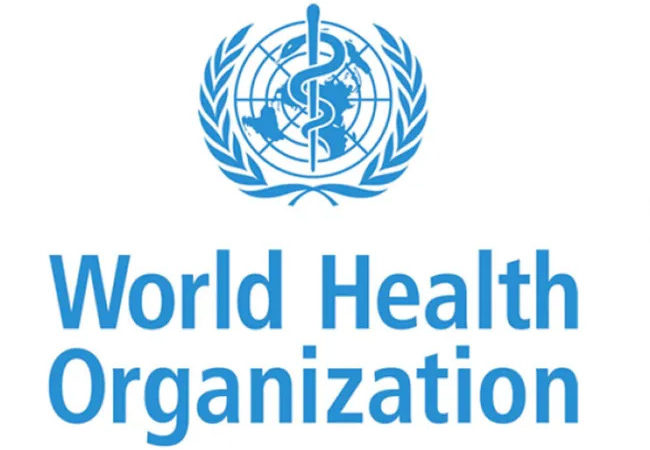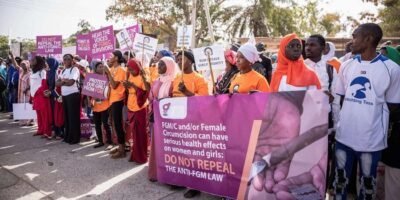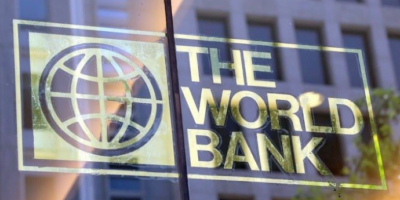WHO: Nigeria, 12 Other African Nations Yet To Surpass 10% COVID-19 Vaccination

Nigeria and 12 other countries in Africa are yet to surpass 10 per cent full vaccination of their population against the COVID-19 pandemic, a report released by the UN Office for the Coordination of Humanitarian Affairs (OCHA) has stated.
Citing the World Health Organisation (WHO) statistics, OCHA stated:
Thirteen countries are yet to surpass 10 per cent of their population fully vaccinated including two of the most populous countries in the region (Nigeria and Democratic Republic of the Congo).
Although the report did not list the other 11 countries besides Nigeria and DR Congo yet to surpass 10 per cent vaccination of their population, it noted that since the deployment of the multi-partner country support teams in January 2022, there had been good progress in vaccine absorption and uptake in the African region.
Among countries that reported an increase in vaccine uptake in February and March, Mozambique, Ethiopia, Uganda, Kenya and Ghana recorded the highest increase in vaccination coverage.
In February and March 2022, Ethiopia implemented the second round of a mass vaccination campaign, which further boosted COVID-19 vaccine coverage in the country, with increased numbers of people receiving their second dose, more people starting with their first dose, and increased uptake of booster doses.
Two countries – Seychelles and Mauritius, surpassed the target of 70 per cent of the population fully vaccinated by the end of December 2021. Four countries – Rwanda, Botswana, Cabo Verde and Mozambique – are on track to reach this target, having vaccinated between 40 per cent and 70 per cent of their population by the end of December 2021.
However, challenges remain. In the African region, 12.8 per cent of the population were fully vaccinated as of 27th March, 2022 (10.2% at the end of February 2022), compared to 57.5 per cent globally.
Thirteen countries are yet to surpass 10 per cent of their population fully vaccinated including two of the most populous countries in the Region (Nigeria and Democratic Republic of the Congo),
the report stated.
It added that the COVAX Facility continues to be the leading source of vaccines delivered in the region, accounting for 68 per cent of doses received.
But the report stressed that the absorption rate of the vaccines received remained at sub-optimal level, with only 54.9 per cent of doses administered of the quantity received.
It noted that 24 countries out of 46 (52 per cent) had administered fewer than 50 per cent of doses received, adding that vaccine doses administered increased by 23 per cent in February 2022 compared to January 2022, but in March 2022 the number of vaccine doses administered decreased by 35 per cent.
It noted that on the average, 8,271,347 doses were administered per week in March 2022 compared to 12, 734,357 doses per week in February 2022.
According to the report, Sub-Saharan African region needs a twelve-fold increase in the weekly number of doses to be administered from April 2022 to June 2022 to continue to move towards 70 per cent target.
It further stated that 31 countries out of 46 had reported expired doses, noting that the percentage of expired doses of all doses received was 1.7 per cent among the 31 countries and 0.9 per cent in the African region overall.
As a result of mass vaccination campaigns, nine countries out of the 20 priority countries in the WHO African Region recorded an increase in doses administered in February 2022 (Democratic Republic of the Congo, Ethiopia, Kenya, GuineaBissau, Madagascar, South Sudan, Ghana, Uganda and United Republic of Tanzania).
However, only three have continued to record increased vaccine uptake in March 2022 (Ghana, Cameroon and South Sudan) in addition to Mozambique, Mali and Burundi. This shows that it is necessary to keep up the momentum in vaccine uptake between mass vaccination campaigns.
It is critical for countries to intensify activities aimed at promoting continued use of health facility vaccination sites, as well as implement the provider-initiated vaccination approach in health facilities. In January 2022, WHO, UNICEF and Gavi, the Vaccine Alliance launched the COVID-19 Vaccine Delivery Partnership (CoVDP) as an inter-agency initiative.
This will build on existing resources globally, regionally and in-country in order to accelerate vaccination coverage in those countries most in need of support. CoVDP complies with the principles of one country team, one plan, one budget and one support team.
In March 2022, in-depth country calls were held with Nigeria, Ethiopia, Kenya, Democratic Republic of Congo, Burkina Faso, and Sierra Leone to discuss issues around urgent funding requests, and identify sources of funding, enhance operational planning and improve vaccination service delivery.
The first quarter of 2022 has shown improvements in vaccine uptake and coverage across the Region, which is benefiting from the deployment of the WHO AFRO multi-partner country support teams, which started in January 2022.
Although challenges remain, this initiative, along with CoVDP, promises to continue to improve vaccine absorption and uptake and move more countries in the Region closer to the 70 per cent target,
the report stated.

Justin Nwosu is the founder and publisher of Flavision. His core interest is in writing unbiased news about Nigeria in particular and Africa in general. He’s a strong adherent of investigative journalism, with a bent on exposing corruption, abuse of power and societal ills.













